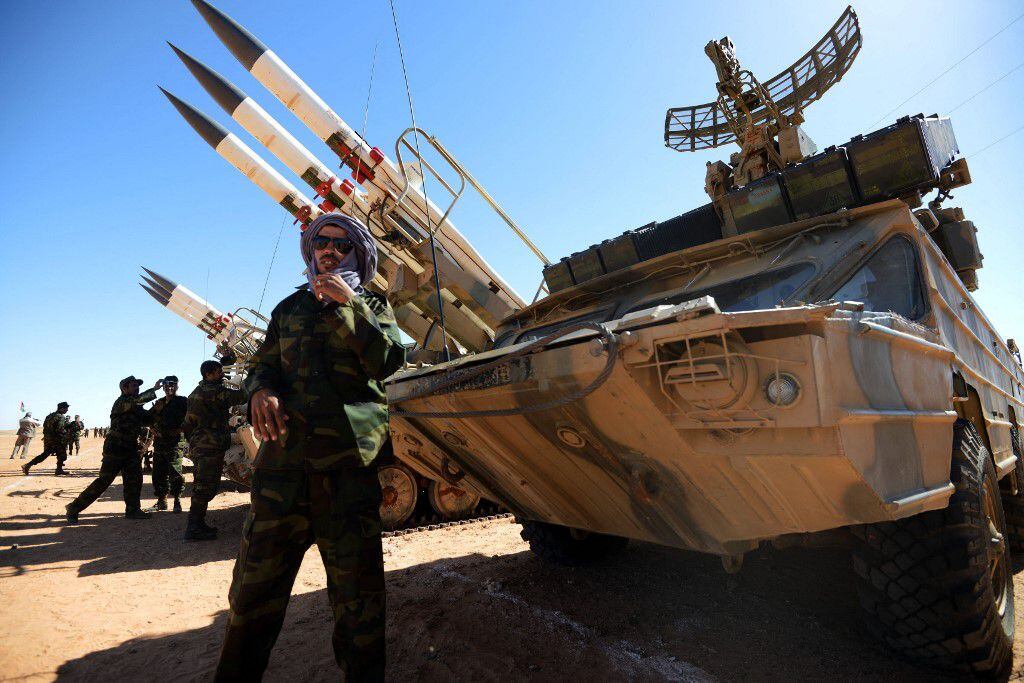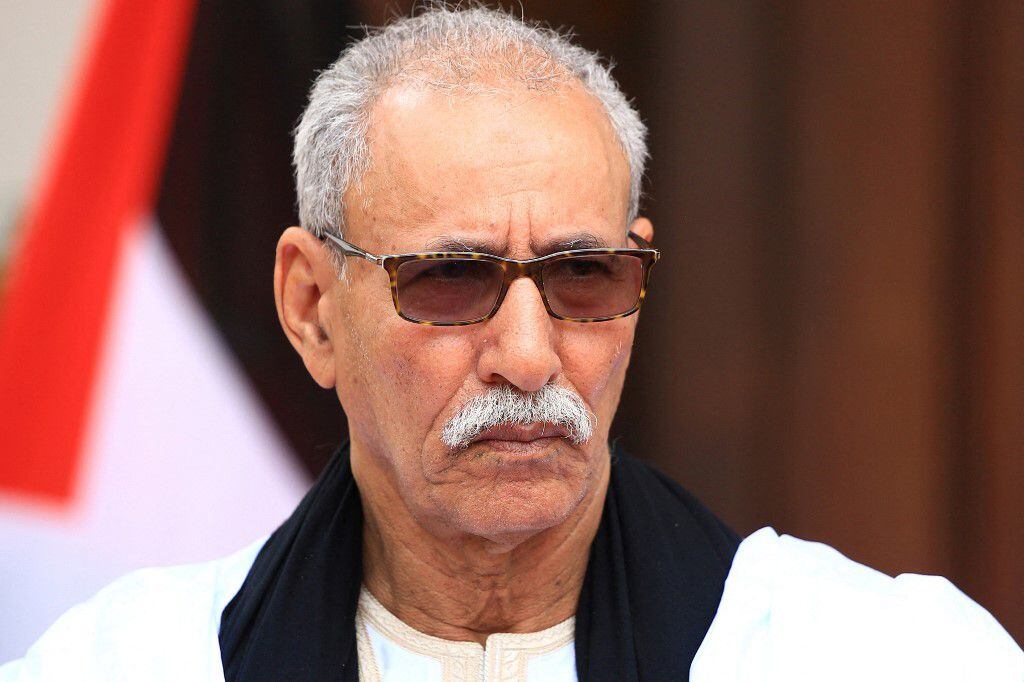Fears and concern have increased again in the Sahara after 30 years of tense peace. The historical conflict they sustain Morocco and the Polisario Front for the control of almost 270 thousand kilometers of the northwest coast of Africa suffers an alarming escalation since the end of 2020. And in the middle of it, Peru has turned the diplomatic helm with a surprising recognition of the movement that advocates a Sahrawi Arab Democratic Republic (SADR).
READ ALSO: Morocco wants a “transparent” investigation into the entry into Spain of the head of the Polisario
The Polisario Front was created in 1973 as a national liberation movement that sought to end Spanish colonization. Two years later, with the withdrawal of the Europeans, Morocco organized the Green March, in which it sent more than 350,000 citizens to populate the region, historically considering it part of its territory. This led to a war that lasted from 1976 to 1991, when a UN truce determined that the solution would be a referendum.
To date, such consultation has not been carried out and Morocco controls two-thirds of Western Sahara. “From 1975 the movement was supported by the then presidents Gaddafi and Houari Boumediene, of Libya and Algeria respectively. They supported the Polisario militarily by unleashing a war from 1976 to 1991. The UN ceasefire said they were going to find a definitive solution to the problem. Initially the option that both parties supported was a self-determination referendum. The problem is that nobody agrees on who can vote”, explains the Trade Mohamed Badine El Yattioui, Moroccan Professor of International Relations at the American University in the Emirates, Dubai.
The Polisario Front, supported by Algeria, maintains that only those who lived in Western Sahara until 1975 should vote, since it considers that the current inhabitants of the region support Morocco. The problem is that the majority of this group is currently in Tindouf, a refugee camp that raises various suspicions due to the difficulties it has shown to the international community in accessing its information and that in Rabat they indicate as a “camp for kidnapped ”.
In Morocco, meanwhile, there has been a trend in recent years that advocates giving regional autonomy within the sovereignty of the kingdom. “Since 2008 Morocco has defended a referendum on autonomy. Many Sahrawis see it favorably because they want to end the 40-year conflict, they consider that it is better to have that autonomy with Moroccan support than to be independent and poor. You have to see that 85% of Western Sahara is administered by Morocco since the Green March, you see the Moroccan flag everywhere, the police are Moroccan, the judges are Moroccans and the public servants too. The investment of the Moroccan Government in these almost five decades has been enormous”Says El Yattioui.
MORE IN THE WORLD | Spain accuses Morocco of “aggression” and “blackmail” with the arrival of migrants in Ceuta
The fragile calm that reigned in the area was finally broken in November 2020, with a Moroccan military incursion at a border crossing. Since then, the Polisario claims to attack the kingdom’s forces daily, although Morocco has not recognized this. “There is a war. Morocco always denies it, but the Saharawi army continues to bombard the Moroccan army on a daily basis“Sahrawi leader Brahim Ghali said two weeks ago.
Although at first glance it is a huge stretch of sand, inhospitable and with just over half a million inhabitants, Western Sahara is a point of great geostrategic importance, in addition to having large phosphate reserves.
“The Sahara has a geopolitical, geostrategic and geoeconomic importance. Algeria’s interest, for example, is to find an outlet to the Atlantic Ocean”, Adds the expert.
PERU’S POSITION
In the midst of this escalation, Torre Tagle announced on September 8 that Peru would reestablish diplomatic relations with the SADR and, therefore, with the Polisario Front. Peru had recognized the group in 1984 during the government of Fernando Belaúnde, but in 1996, with Alberto Fujimori in power, it stopped doing so and instead extended its relations with Morocco.
The announcement has led Foreign Minister Óscar Maúrtua to appear before the Foreign Relations Commission of Congress to explain the decision. The minister argued that the new position responds to the defense of the international right of self-determination for the peoples. To do this, he cited the 1975 opinion of the International Court of Justice (ICJ) that considers Western Sahara as a non-autonomous territory.
“It is based on part of the ICJ opinion, but not all. There is another part that says that the Sahrawis before 1884 had a sovereign relationship with the Sultan of Morocco. The Polisario argues that this relationship was a consequence of Islamic law. The truth is that it is a conflict of the Cold War, Morocco supported the US and the Polisario the Soviets”Says El Yattioui.

MORE INFORMATION | What is the Polisario Front, the independence movement after the migrant crisis facing Morocco and Spain?
The academic assures that the Peruvian decision was among the scenarios contemplated after the arrival of Pedro Castillo to power, although he admits that it is still surprising.
“The Polisario Front has had many links with the Latin American left, thanks to Algerian diplomacy in the 1970s. They had an incredible relationship with Fidel Castro and Cuba, in turn, had great influence in the region. There is a romantic vision of the Polisario. What they have always claimed is that they are the last colony in Africa. What nobody says in Latin America is that many historical leaders of the Polisario apologized to King Hassan II since 1992 and ended up being Moroccan ministers.”, He points out, assuring that it is a distortion of reality that creeps into our region due to ignorance.
The academic, who has been in the area countless times, is an outspoken opponent of the Polisario’s message on the colony situation of the Sahrawis. “Morocco does nothing like a similar form of colonization. The GDP per inhabitant in the Sahara is higher than in the rest of Morocco, its population receives special support from the Government, everyone receives a minimum salary. Basic products cost half that in the rest of the country because they are subsidized. And to conclude, how a colony would have had the highest level of voting in the September 8 elections. There is a distortion between reality and the communication of the Polisario”, He assures.
On relations with Morocco after Peru’s new position, El Yattioui has no doubt that these will be affected. “I believe that it will not close its embassy in Lima, but it will reduce its level of cooperation. The Peruvian Government is supporting its enemies”, He says.
THE CURRENT OF THE POLISARIO FRONT
After the death of its historical leader Mohamed Abdelaziz, Brahim Ghali assumed the leadership of the Polisario.
The majority of Sahrawis are concentrated in Tindouf, a refugee camp in Algeria. Ghali, for his part, has been accused of sexually assaulting several women during his stay in Tindouf.
At the time, the SADR was recognized by 80 countries. Currently, the list is reduced to less than half. “It is facing a crisis, in the 70s it was a national liberation movement, but they became a single party that makes decisions for everyone, without consultation and by co-option. Today they are supported mainly by Venezuela, Nicaragua, Cuba, Algeria, South Africa and Iran. And now Peru. From who is your ally I can tell who you are”Says El Yattioui.

- 5 keys to understanding the forgotten conflict in the Sahara
- Who is Otoniel, the narco whose capture is compared to the fall of Escobar
- Why is Macri accused of espionage and what impact would it have on the elections?
- Companies in the US are desperately looking for workers; Why can’t they find them?
- What are the prop weapons used in film shoots like and why are they dangerous?
- Drug trafficking, crime and protests over the crisis: How Ecuador looks back into the abyss
.

:quality(75)/cloudfront-us-east-1.images.arcpublishing.com/elcomercio/QGFUGQPWQRF5PKTJGROIKW3MDM.jpg)

:quality(75)/cloudfront-us-east-1.images.arcpublishing.com/elcomercio/P323BFQEDJDSLOMMROS5BFNDFQ.jpg)
:quality(75)/cloudfront-us-east-1.images.arcpublishing.com/elcomercio/WQ5CBAGFTZHK5BTVUMDRHX7ETM.jpg)
:quality(75)/cloudfront-us-east-1.images.arcpublishing.com/elcomercio/VG4NWTQT7RH7VIINDA5ETKQ4IQ.jpg)
:quality(75)/cloudfront-us-east-1.images.arcpublishing.com/elcomercio/6DVSHYETMVE5RBHH634UMGECIA.jpg)
